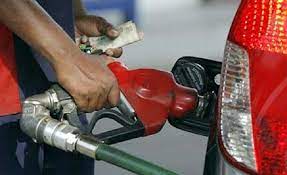By Joni Akpederi
This year, the last in President Muhammadu Buhari’s controversial and turbulent two-term stewardship of Nigeria’s economy, the government has bungled the best opportunity any government has had to rest the lingering problem of a corruption-riddled fuel subsidy regime that has all but ruined Africa’s largest economy.
Against all expectations and politico-economic logic, the government chickened out of a long thought-out exit from a subsidy policy the whole world knows has had the most deleterious effect on economy and source of the worst corruption the Buhari Administration purports to be fighting and hinges its integrity on.The government glibly told a bewildered nation and the international community that it has decided to continue the subsidy fiesta for another 18 months, well beyond its own life span! For all it cares, the government of Buhari has now dropped the hot subsidy issue and kicked the odious can down the road.
On assumption of office seven years ago, President Buhari had openly and vehemently denounced the fuel subsidy regime he met as a fraud and glibly pledged to do away with it the moment he had the slightest opportunity to do so.
Virtually all the ‘powerful’ ministers in the Administration are falling all over themselves to explain away the embarrassing policy flip-flop that has made nonsense of the most strategic Petroleum Industry Act (PIA); a piece of legislation that took the country over two decades to achieve. All the Minister of Finance, Budget and National Planning, Zainab Ahmed could mumble was that the Administration had only just realized, after seven long years in power that the removal of the economy-ravaging fuel subsidy would worsen Nigeria’s now galloping inflation on the run due to a disastrous forex management regime! Minister of State for Petroleum, Chief Temipre Sylva who actually does the speaking for de facto Petroleum Minister, President Buhari, has attempted to explain that all was well, as the subsidy removal was only just postponed and not abandoned, in a futile bid to get foreign investors in the critical oil sector to reason like the Administration and swallow the outrage of the PIA’s utter uselessness.
The age-long subsidy palaver isn’t really a uniquely Nigerian problem; like COVID-19, it’s a global “epidemic”. It really belongs to the entire global economy, for subsidies of every sort bother economists and policymakers in all countries at some point in the development of their economies. Even the biggest and most developed countries struggle with the politics of subsidies: the Almighty US and Japan give massive subsidies to farms and agro-allied industries to ensure food security in their nations and prevent shortages and food riots; Britain’s housing policy virtually gives away homes for the less-privileged in their society to solve the problem of homelessness and keep their streets safe. Every other country of the world provides an assortment of subsidies for staple food (flour, grains etc) and sundry social services to help the most vulnerable in society cope with living in an increasingly difficult economic environment.
What is actually a uniquely Nigerian problem is the management of subsidies. The country’s most obvious and contentious subsidy has been the indefensible one for fuel consumption. Official records say government has thrown over $11billion at fuel subsidies in the past two decades. Critics say the benefits go to oil merchants and agents and privileged, car-owning elite in society who, interestingly, really don’t deserve or need them. Central Bank of Nigeria (CBN) reports that as much as $700 million of the country’s scarce foreign exchange was expended on fuel importation in the last eight months. All this is happening in a country that has just thrown $1.5 billion dollars at a few moribund refineries that had gulped multiples of that sum in the past two decades with nothing to show for it; and a country that expects to have the Dangote Refinery (Africa’s largest), in which it has interest, begin production this year. Little wonder, critics loudly and plausibly lambast the Administration of simply looking to use the unbelievable three trillion naira it estimates will go into fuel subsidies this year as a feeding trough for the coming 2023 general elections.
Oil prices have climbed up to a decade-high level, hitting the $90 per barrel mark, and are heading even higher as demand surges in Europe and the global economy recovers from the COVID-19-induced slowdown.
That’s supposed to be good news for Nigeria.
Unfortunately, the perverse effect is that Nigeria’s policymakers, public administrators and politicians now have the excuse, in firming oil prices, the false argument they need to continue the ruinous fuel subsidies even they themselves know will be the undoing of a nation embroiled in all manner of crises — political, economic, and raging insecurity.


